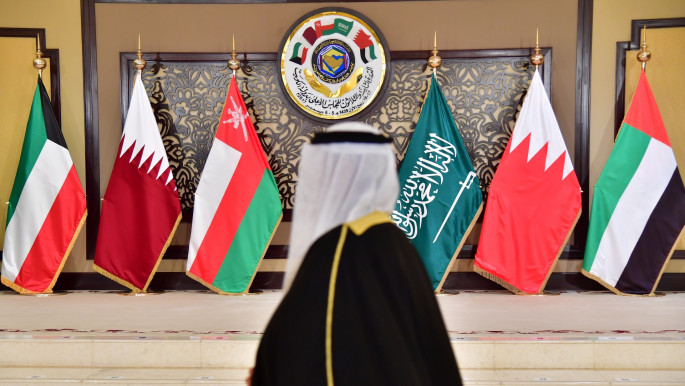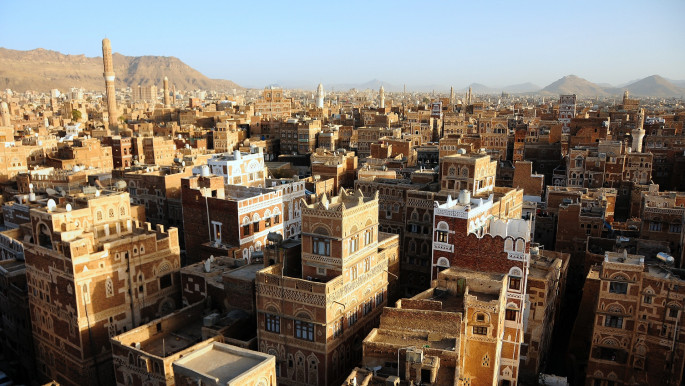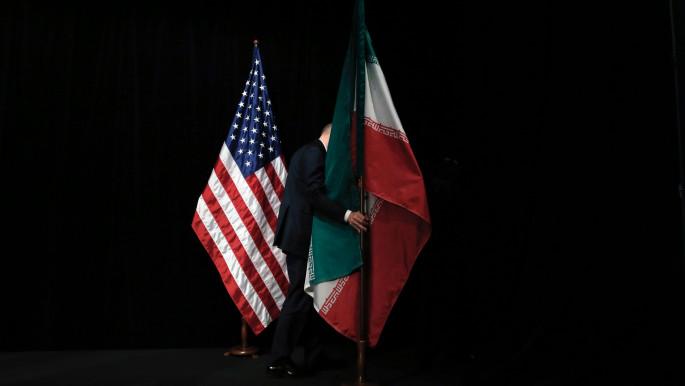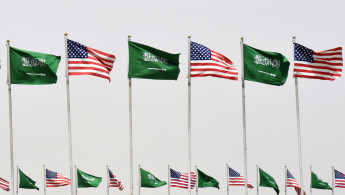How US-Saudi ties could change in the Biden era
Out of all the GCC states, the most dramatic impact could be felt in Saudi Arabia once the Biden administration takes over.
Having had close ties with the Trump administration, Riyadh could feel let down as it loses some of the privileges granted by the outgoing government. Interestingly, Riyadh has also adopted a guarded stance and was slow to respond to the news of Biden's electoral victory. Taking its time to congratulate the President-elect, the Saudi government seemed apprehensive.
Assessing the possibilities, Yasmine Farouk, visiting fellow in the Middle East Program at the Carnegie Endowment for International Peace, said that, "What they are going to lose is the complete immunity that Trump has given them and the personal access."
Furthermore, President-elect Joe Biden has pledged to "reassess" US ties with Saudi Arabia. Therefore, Riyadh could experience setbacks in several major areas.
First, having vowed to end US support to Saudi Arabia in Yemen's war, Biden has suggested that weapons sales could also be ended. Only recently, he told the Council of Foreign Relations that he would "end U.S. support for the disastrous Saudi-led war in Yemen and order a reassessment of our relationship with Saudi Arabia."
 |
Out of all the GCC states, the most dramatic impact could be felt in Saudi Arabia once the Biden administration takes over |  |
Resisting pressure from Congress to curb arms sales to Riyadh, the Trump administration had reversed steps taken by former president Barack Obama to cut back on US military and intelligence aid to the Kingdom. Consequently, Washington has been providing logistics and intelligence support to the Saudi side in the war on Yemen.
Meanwhile, a resolution to end US involvement in the war was passed by both houses of Congress, but was vetoed by Trump. According to Gregory Johnson, a former member of the UN Security Council Panel of Experts on Yemen, "the Biden administration can have a very positive impact on ending the war in Yemen. Indeed, the US may be the only country, which – if it so chooses - can put enough diplomatic pressure on Saudi Arabia to end the war in Yemen."
 |
|
| Read more: Biden as president: Winners and losers in the Gulf |
Therefore, restrictions on arms sales are likely to be implemented once again as the US tries to stabilise conflict zones in the Middle East with peace deals or ceasefires.
However, according to Kristian Ulrichsen, a fellow for the Middle East at Rice University, the US would disengage from Yemen but not clamp down on all arms sales as Washington does not wish to lose Saudi business. Instead, the "weapons sales would be defensive rather than offensive in nature."
From 2014 to 2019, US arms sales to Saudi Arabia made up a quarter of all its sales, according to the Stockholm International Peace Research Institute (SIPRI).
Secondly, Joe Biden is more inclined to re-enter the 2015 Joint Comprehensive Plan of Action (JCPOA) deal with Iran, which Trump withdrew from in 2018. Calling it the "worst deal ever", he erased former president Barack Obama's legacy-defining foreign policy achievement in the Middle East.
Months before the election, Biden wrote in an op-ed that he was in favour of re-entering the JCPOA, saying that, "I will offer Tehran a credible path back to diplomacy. If Iran returns to strict compliance with the nuclear deal, the United States would rejoin the agreement as a starting point for follow-on negotiations."
 |
Having vowed to end US support to Saudi Arabia in Yemen's war, Biden has suggested that weapons sales could be ended |  |
Riyadh had never approved of the nuclear deal. The Saudi Minister of State for Foreign Affairs, Adel al-Jubeir, criticised it at a presser in Riyadh last year, saying that it was disastrous as it did not take into account Iran's expansive missile program nor the proliferation of its proxy militias across the Middle East.
However, the Biden administration is not likely to be swayed by the influence of regional allies like Saudi Arabia in its plans for salvaging the nuclear deal.
There is a short window of opportunity for the Biden administration as the present government in Tehran is not averse to re-negotiating it. If hardliners win the Iranian elections in June next year as predicted, there could be more complications.
The assassination of Mohsen Fakhrizadeh, head of the Iranian ministry of defence's research and innovation organisation and a key figure in Tehran's nuclear program, could also make it harder for Joe Biden to bring Washington and Tehran to a new understanding.
 |
|
| Read more: Biden and the Saudi quagmire in Yemen |
"The purpose [of assassinating Fakhrizadeh] was to further escalate hostilities and create a barrier to diplomacy under a new Biden administration," Dr. Assal Rad, a senior research fellow at the National Iranian American Council, told The New Arab.
However, the sanctions imposed by Trump give Washington considerable leverage. Lifting all the restrictions may be difficult but some minor sanctions like the travel ban or hurdles restricting humanitarian imports are likely to be removed immediately.
Thirdly, the Qatar blockade is likely to end under the new administration. The Trump government has already made efforts to end the rift between Doha and other GCC states, including Saudi Arabia, the UAE, Egypt and Bahrain. Negotiations have been in process for months to lift the blockade before Trump hands over power, and a much-anticipated reconciliation between members is expected to take place at the Gulf Cooperation Council summit.
 |
Despite the resilience of the US-Saudi strategic partnership, there are bound to be some divergences and relations could be low-key for the near future |  |
Located in Qatar, the Al-Udeid air base is the Pentagon's most strategically important base in the Middle East and all air operations in the Central Command region, from Syria to Afghanistan, are directed from there.
And finally, under Biden there may be renewed concerns about human rights in the Kingdom. Despite strong words during the election campaign, a more balanced approach is usually adopted by politicians after assuming power.
 |
|
| Read more: Could Biden bring the US back into the Iran nuclear deal? |
It may not be the only Gulf state that is ambivalent about human rights, but Riyadh stands out on several occasions, the worst being the killing of Saudi journalist Jamal Khashoggi in October 2018 in Riyadh's consulate in Istanbul.
At the time, the US government had been rather lenient with the Kingdom despite the outcry over its human rights record. Having given Saudi Arabia space whenever it was caught in controversies, the Trump administration was also supportive due to the friendship between Jared Kushner and Crown Prince Mohammed bin Salman. Trump had also chosen Riyadh for his first foreign presidential visit in 2017.
Notwithstanding several adverse indications from the incoming Biden administration, Saudi-US ties have weathered changes in Washington and remained sustainable even through low points.
But this time round, despite the resilience of the US-Saudi strategic partnership, there are bound to be some divergences and relations could be low-key for the near future.
Sabena Siddiqui is a foreign affairs journalist, lawyer and geopolitical analyst specialising in modern China, the Belt and Road Initiative, Middle East and South Asia.
Follow her on Twitter: @sabena_siddiqi





 Follow the Middle East's top stories in English at The New Arab on Google News
Follow the Middle East's top stories in English at The New Arab on Google News


